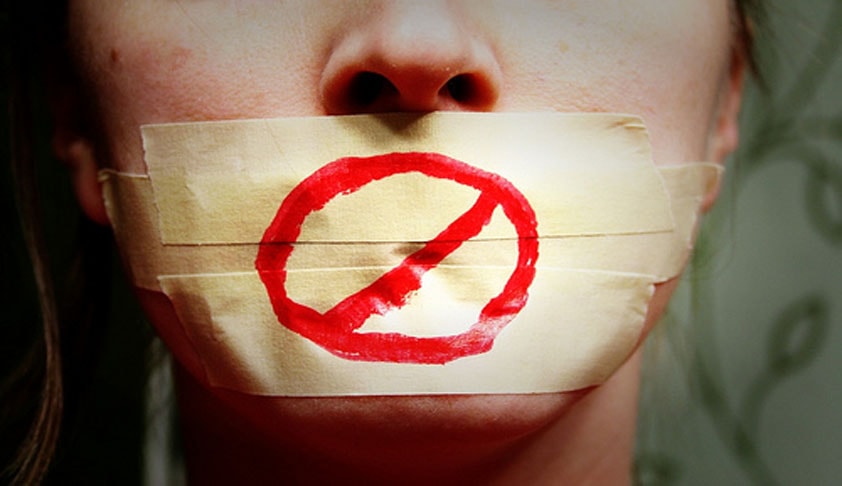Freedom Of Speech v. Contempt Of Court
Mohit Sharma
16 Nov 2016 9:42 AM IST

“Those who expect to reap the blessing of freedom must undertake to support it."
- Thomas Paine
Art. 19(1)(a) of the Constitution guarantees freedom of speech & expression. It is also guaranteed under Liberty clause to the preamble. The major international & regional instruments on civil & political rights - the International Covenant on Civil & Political Rights (ICCPR), the European Convention on Human Rights (ECHR), the American Convention on Human Rights (ACHR), & African Charter on Human & People’s Right (ACHPR) - all protect both “freedom of expression” and the “administration of justice.” Freedom of expression is protected in Art.19 of the ICCPR as follows:
- Everyone shall have the right to hold opinions without interference.
- Everyone shall have the right to freedom of expression; this right shall include freedom to seek, receive and impart information and ideas of all kinds, regardless of frontiers, either orally, in writing or in print, in the form of art, or through any other media of his choice.
The permissible restrictions on freedom of expression are expressed in similar terms in the international and regional instruments. Article 19(3) of the ICCPR & the glimpse of same can be seen under Art. 19(2) of the Indian Constitution. It says;
The exercise of the rights provided in article carries with it special duties and responsibilities. It may therefore be subject to certain restrictions, but these shall only be such as are provided by ‘law’ and are ‘necessary’;
(a) For respect of the rights and reputations of others;
(b) For the protection of national security, public order, public health, morals, &‘contempt of court.’
Case Analysis
In the Australian case of Attorney-General for N.S.W. v. Mundey ([1972] 2 NSWLR 887,p.809), Hope J stated:
There is no more reason why the acts of courts should not be trenchantly criticised than the acts of public institutions, including parliaments. The truth is of course that public institutions in a free society must stand upon their own merits: they cannot be propped up if their conduct does not command the respect and confidence of the community; if their conduct justifies the respect and confidence of a community they do not need the protection of special rules to protect them from criticism.
In the United Kingdom, Australia and New Zealand, the common law test of liability requires a real risk, as opposed to a remote possibility, that public confidence in the judicial system would be undermined [Solicitor-General v. Radio Avon Ltd. [1978] 1 NZLR 225, p.234]. By contrast, in the United States, the offence of “scandalising the court” has been limited in application for several decades. The Supreme Court has made it clear, in a series of cases, that the publication must create a “clear and present danger” to the administration of justice [Bridges v. California, 314US 252].
Since the purpose of this branch of contempt law is to maintain public confidence in the administration of justice, it seems logical that criticisms of judges as individuals, rather than as judges, should not be subject to contempt of court proceedings. This was confirmed in In the Matter of a Special Reference from the Bahama Islands [[1893] AC 138], where the Privy Council ruled that criticisms of the Chief Justice which were not directed at him in his official capacity as a judge were not contempt.
Long back the Privy Council in Ambard [Ambard v. Attorney-General for Trinidad and Tobago [(1936) AC 322]] held that reasoned or legitimate criticism of judges or courts is not contempt of court. The Privy Council held:
The path of criticism is a public way; the wrong headed are permitted to err therein: provided that members of the public abstain from imputing improper motives to those taking part in the administration of justice, and are genuinely exercising a right of criticism, and not acting in malice or attempting to impair the administration of justice, they are immune. Justice is not a cloistered virtue: she must be allowed to suffer the scrutiny and respectful, even though outspoken, comments of ordinary men.”
In Wills [Nationwide News Pty. Ltd. v. Wills [(1992) 177 CLR 1]] the High Court of Australia suggested that truth could be a defence if the comment was also for the public benefit. It said, “...The revelation of truth – at all events when its revelation is for the public benefit – and the making of a fair criticism based on fact do not amount to a contempt of court though the truth revealed or the criticism made is such as to deprive the court or judge of public confidence…”.
In Duda P.N. v. Shivshankar, P., the Supreme Court observed that the contempt jurisdiction should not be used by Judges to uphold their own dignity. In the free market places of ideas, criticism about the judicial system or the Judges should be welcomed, so long as criticisms do not impair or hamper the “administration of justice”.
In Auto Shankars’ Case, Jeevan Reddy J., invoked the famous “Sullivan doctrine” that public persons must be open to stringent comments and accusations as long as made with bonafide diligence, even if untrue.
In Arundhati Roy, In re, the Supreme Court observed that a fair criticism of the conduct of a Judge, the institution of the judiciary and its functioning may not amount to contempt, if made in good faith and in public interest.
In Indirect Tax practitioners’ Association v. R.K. Jain, the S.C. observed that the Court may now permit truth as a defence if two things are satisfied, viz., (i) it is in public interest and (ii) the request for invoking said defence is bona fide. (S.13 ,Contempt of Courts Act,1971).
Scope
Let me put it like this, Is it Art. 19(1)(a) v. rest of the provisions which perhaps imposes reasonable restrictions & curb the speech & expression given under the above provision r/w Liberty clause to the Preamble. Can a persons’ right to express himself be curtailed for the reasons which perhaps are driven by ones’ own sense of wisdom ! Can a emerging democracy or a power like us afford to put someones’ right of expression in rest by using any tool given under Art.19(2) ! I don't think, I just don't think its advisable in a country like ours to put the expression or speech to rest by using this & that tool for the most minuscule of the reasons. Yes, it can be curtailed but only in the exceptional of the exceptional circumstances. Freedom to express is not just fundamental but it is natural also. Taking into consideration the various acts & treaties & the law laid down by various Courts across the various jurisdictions, Free speech & restrictions on it…, we cannot balance the two interests as if they are of equal weight. Free Speech has a greater weight in this balance that finds itself in various cases delivered by the Supreme Court of India itself. And whenever there is a curb which is being put on free speech, it does then have chilling effects on the very ethos of the Constitution.
 Mohit Sharma is a Lawyer practising in the High Court of Himachal Pradesh, Shimla.
Mohit Sharma is a Lawyer practising in the High Court of Himachal Pradesh, Shimla.
[The opinions expressed in this article are the personal opinions of the author. The facts and opinions appearing in the article do not reflect the views of LiveLaw and LiveLaw does not assume any responsibility or liability for the same]
This article has been made possible because of financial support from Independent and Public-Spirited Media Foundation.


